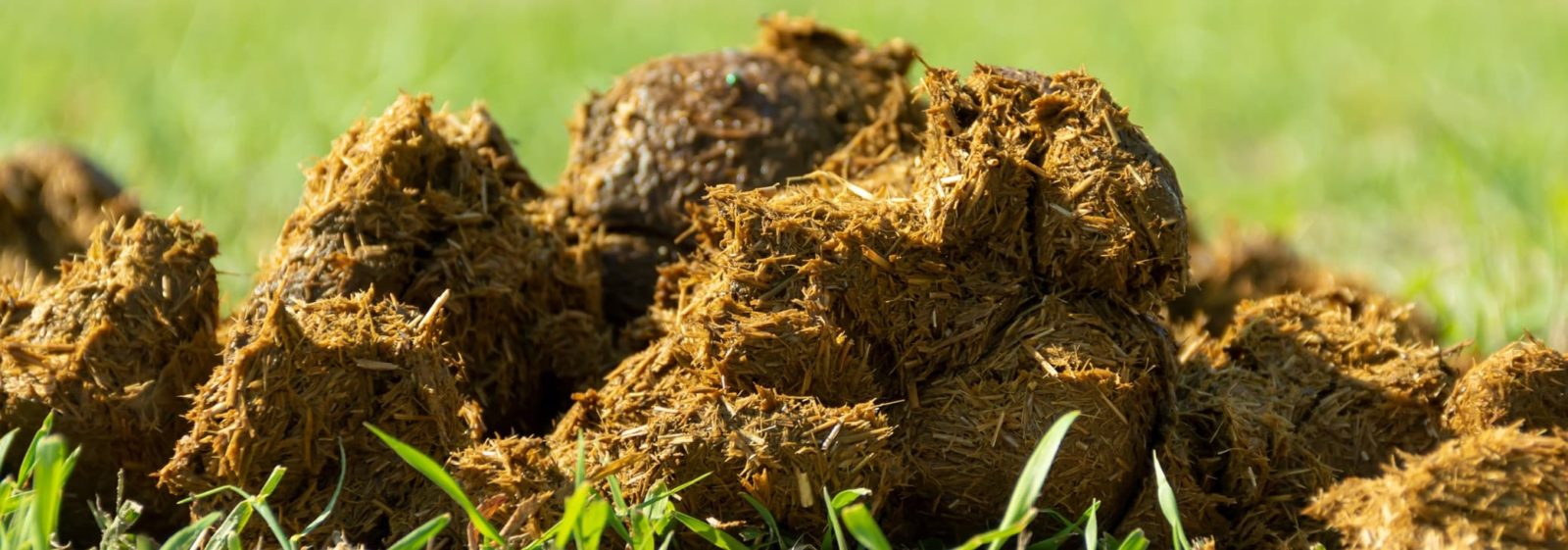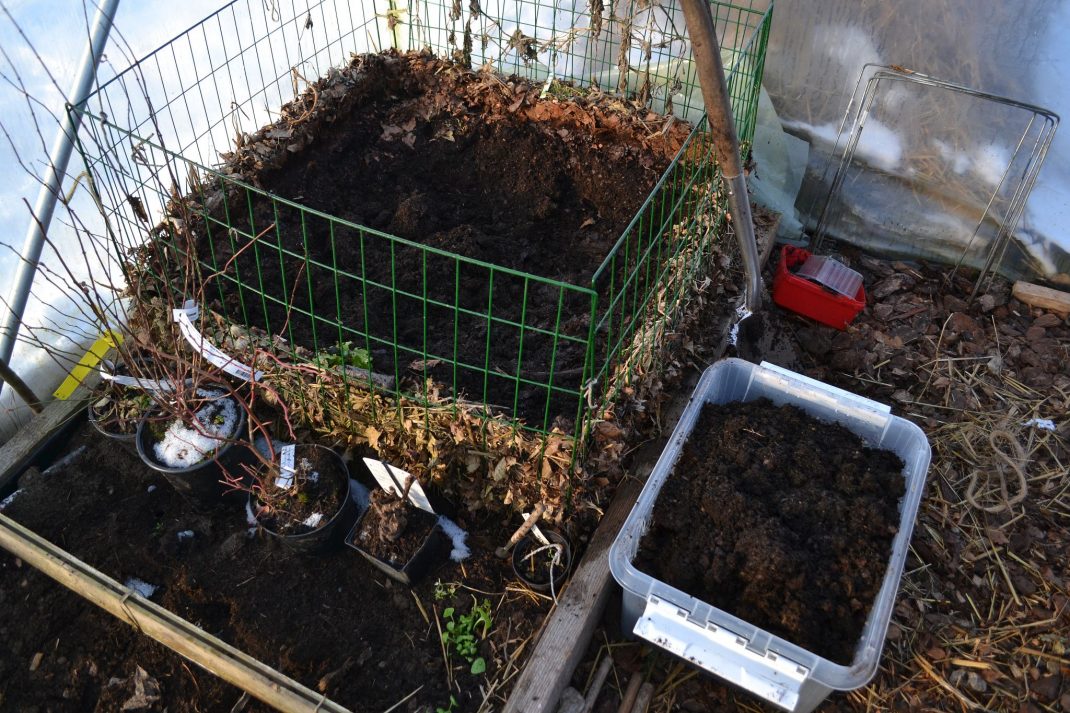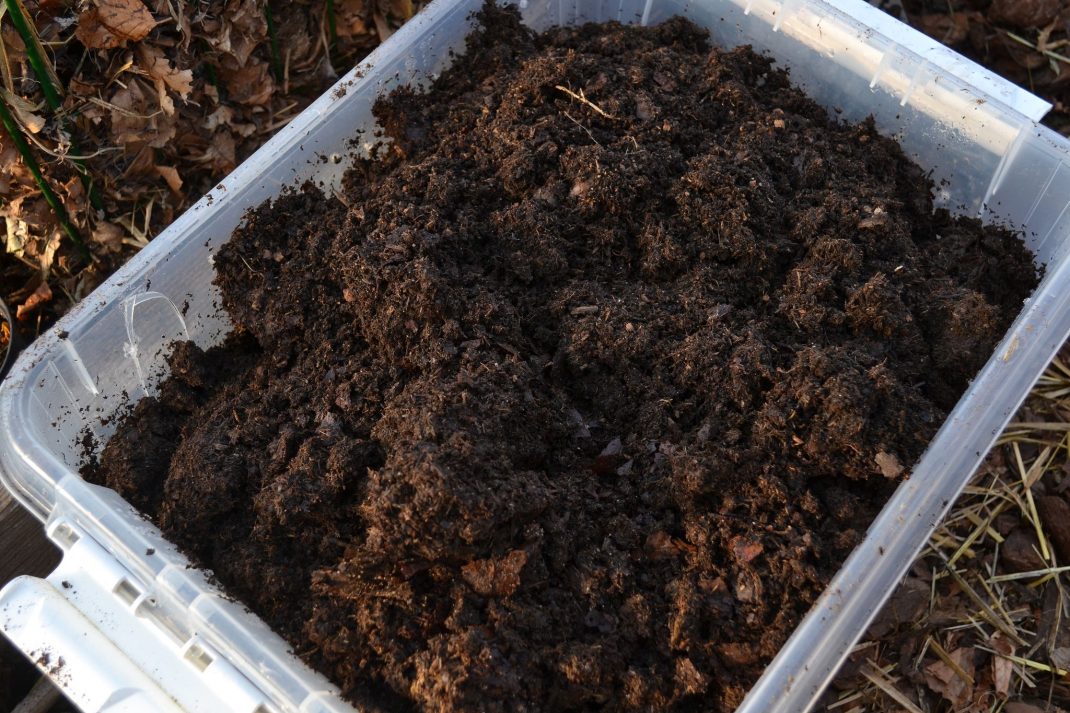I have been thinking so much about horse manure lately. It smells so good that you might not believe it, but it’s really fun to work with! In the past, I only used a bag here and there and only used it all in my hotbeds. But things are going to be different now!.
Im starting a new little blog series about how to use horse manure as fertilizer in your garden. Check it out!.
Composted horse manure is such a great and gentle fertilizer. It’s usually mixed with straw, which isn’t very nutrient-dense to begin with; it just gives it texture. This way, you don’t have to worry about getting too many nutrients at once when it’s all broken down and ready to use in the garden. One reason horse manure is such a good fertilizer is that you can’t use too much of it.
What is it like to use? Well, when it’s been composted, it feels a lot like regular soil. The composting process is really quick and really gives the beds a huge boost. Especially the first year. After that, you have to keep adding more so the worms and microbes can keep living and growing in your beds.
A lot of people use horse manure in their hotbeds. They simply use a fresh pile of manure to create a new bed that generates heat. You can start growing on top of the pile even if its cold outside. By the end of summer, the hotbed should be done. At that point, the fertilizer will have broken down completely and can be used to improve the soil in other parts of your garden.
If you have access to horse manure you may be wondering if it can benefit your lawn or pasture grass. Horse manure contains nutrients that grass needs but it also poses some risks. In this article, I’ll examine the pros and cons of using horse manure on grass so you can make an informed decision.
The Potential Benefits
Horse manure can improve soil structure and provide essential nutrients, especially nitrogen, that grass requires to stay green and grow. Here are some potential advantages of using horse manure on grassy areas:
-
Slow-release organic fertilizer – Horse manure releases nitrogen, phosphorus and potassium over time as it breaks down. This provides a gentle feeding for steady grass growth.
-
Rich in nutrients – Fresh horse manure contains nitrogen, phosphorus, potassium and micronutrients that all grasses need. It acts as an organic fertilizer
-
Improves soil structure – The organic matter in manure feeds beneficial soil organisms Their activity improves drainage, aeration and moisture retention in soil.
-
Prevents erosion – Spreading a thin layer of manure can protect soil from eroding during heavy rain. The small particles fill in bare spots and stabilize the ground.
-
May suppress weeds – Some gardeners find that horse manure seems to inhibit weed seeds from sprouting when applied in a thick mulch layer.
-
Low cost or free – If you have access to a local stable, horse manure is often free for the taking, providing an inexpensive way to boost your lawn or pasture.
Potential Drawbacks to Consider
Using horse manure on grass also comes with some caveats. Be aware of the following risks and downsides:
-
High in salts – Horse manure contains salts that can burn grass roots if allowed to accumulate year after year. Always test soil salt levels before applying more manure.
-
Weed seeds – Manure with bedding may include viable weed seeds that can lead to an infestation. Composting manure first kills these seeds.
-
Unpleasant odor – Fresh horse manure can give off an ammonia odor. Composting manure first reduces the smell significantly.
-
Pathogens – Horse manure can harbor dangerous pathogens like E. coli that survive in fresh manure. Proper composting destroys most pathogens, making the manure safe.
-
Nitrogen imbalance – Too much fresh horse manure can overload soil with nitrogen. This leads to excessive top growth in grass and potential disease issues.
-
Timing difficulties – The nutrients in horse manure are not immediately available. It’s best applied in fall for benefits the next growing season. Quick boosts of nitrogen should come from commercial fertilizer instead.
Best Practices for Using Horse Manure on Grass
If you decide the benefits outweigh the risks, follow these best practices for applying horse manure to grass:
-
Test your soil first to determine current nutrient levels and pH. This helps you avoid over-fertilizing.
-
Use fully composted manure whenever possible. Composting reduces odor, pathogens, viable seeds and salt content.
-
Apply manure in fall, at least 2-3 months before the next growing season. This provides time for the organic nutrients to break down.
-
Spread manure in a thin layer no more than 1/4-1/2 inch deep. Rake thoroughly into the top few inches of soil.
-
Limit applications to once every 2-3 years. Annual applications can overload soil with salts and nitrogen.
-
Mix some commercial nitrogen fertilizer with manure to provide some quick greening while waiting for the slow-release organic nitrogen.
-
Irrigate grass deeply after applying to wash some salts through the soil profile away from grass roots.
-
Monitor grass health and soil nutrient levels. Adjust applications as needed based on soil test results.
An Organic Fertilizer Option with Careful Management
Horse manure can be an economical organic fertilizer for your lawn or pasture when used judiciously. Follow the guidelines here to minimize any risks from pathogens, odors or over-fertilization. With careful management, the nutrients and soil benefits from horse manure can help your grass thrive. But don’t expect instant results – the rewards of using this organic material take patience and time.
Fresh or composted manure?
Beginners should definitely start with composted manure. The reason why might need some further explanation:
Most of the time, horse manure is mixed with straw or shavings that were used to bed the horses. This bedding is often made of regular straw, wood chips or peat. These materials contain a lot of carbon but no actual nutrients that the soil can use. The opposite, actually. Straw, peat and wood chips need energy from another source in order to decompose. This energy comes from the urine and feces in the pile of manure. It’s possible for your soil to lose some of its nutrients if you mix fresh manure with bedding materials right in your beds. This is because the energy required for the decomposing might be drawn from the soil instead. I know it sounds weird, but your plants won’t grow nearly as well in soil that doesn’t have as many nutrients.
The bedding materials are not just nuisance though. They actually give the soil a really nice texture. Just be sure to use manure that has been broken down or add some other nitrogen-rich fertilizer if you choose to use fresh manure.
Its not entirely easy to know everything from the beginning of course. Thats why I think that the easiest path simply is to start with the composted manure. Or, fresh manure that doesnt contain any bedding material. I have a picture of the latter a bit further down in this post.
Finding and getting manure
Horse manure is fairly easy to work with, especially composted manure. Its so convenient in a smaller garden. Perhaps you only have a few pallet collars and beds after all, which makes the process really manageable. Horse manure works great in a larger garden too. It just requires a bit more work to move it all around.
Then where do you get horse manure? Just call the horse owner, riding school, or stable closest to you and ask if you can have a couple of bags. Make sure to use big bags to transport the manure in your car though. You dont want manure all over the trunk of your car after all. A few trips is all you need to get enough manure for your entire garden.
In case you need to cover a bigger area, you could always have the manure brought to your house. I know a lot of horse owners who can help you out. Maybe in exchange for a bag of fresh vegetables grown at home later in the summer?
Fresh horse manure on grass test
- The Ultimate Guide to Growing Strawberries in Raised Beds - August 8, 2025
- No-Dig Garden Beds: The Easiest Way to Grow a Beautiful Garden - August 6, 2025
- How to Protect and Preserve Wood for Raised Garden Beds - August 6, 2025



